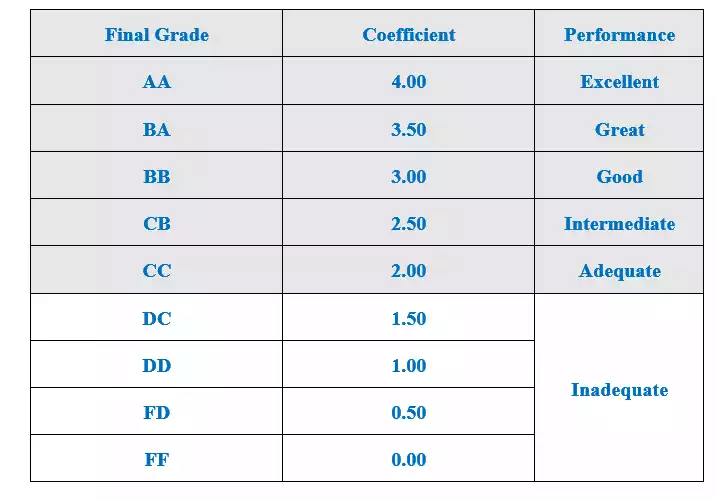ACCEPTANCE AND REGISTRATION CONDITIONS
Candidates with a high school diploma, candidates who have reached certain success in the central exams made by the Measurement Selection and Placement Center (OSYM) or in the international exams accepted by the Higher Education Council, are placed by considering their preferences and success orders. The candidate who has had the right to become a student completes the final registration with the required documents within the period announced by the university.
In addition, successful students who have graduated from Vocational Schools are admitted to the Civil Engineering Department through DGS (Vertical Transfer Exam) conducted by OSYM.
RECOGNITION OF PRIOR LEARNING
Recognition of prior learning in higher education institutions, vertical and lateral (intra-university and inter-university) transfers are carried out within the scope of "Regulations on the Principles of Transfer between Associate Degree and Undergraduate Degree Programs, Double Major, Minor Programs in Higher Education Institutions and Credit Transfers between Institutions", published in the Official Gazette dated 24.04.2010 and numbered 27561. Students are subjected to the exemption assessment and/or exam at the beginning of the academic term for the courses they have taken in their previous education programs. Students who are considered to meet the expected qualifications from these courses or students who succeed in the exams may be exempted from the relevant courses in the first four semesters of the curriculum.
ACCESSING TO HIGHER DEGREE PROGRAMS
Students who successfully complete their undergraduate education can study in graduate programs provided that they get a valid grade in the ALES exam and have enough English language knowledge (with the results obtained from YDS, YÖKDİL, TOEFL, etc.).
MEASUREMENT AND EVALUATION
In the Civil Engineering program, different evaluation methods such as homework, practice and project application are applied in addition to the midterm and final exams, depending on the course quality and necessity. Exams can be in the form of a classic exam or multiple choice exams. In homework and project evaluations, performance evaluation can be carried out by means of a written exam or an oral exam. The grade of a course is determined as a result of the evaluation of the above elements and is given in letters. The letter grades and the coefficient of each grade are given below. In addition, other issues related to measurement and evaluation are stated in the third part of Erciyes University Associate Degree and Undergraduate Education Regulations.
GRADUATION CONDITIONS
The student who has passed all the courses within the scope of the program and completed his internship receives the title of Civil Engineer. In order to be considered successful, the course grade must be CC and above (it shouldn’t be FF, FD, DD or DC). In order to graduate, students are required to succeed all the compulsory and elective courses in the curriculum of the year they entered the department, to provide at least 240 ECTS credits in the courses successfully completed, and to have a GPA of at least 2.00 out of 4.00. These conditions are also valid for the students who benefit from lateral and vertical transfer to the department.
EMPLOYMENT OPPORTUNITIES
Civil engineers can work as a designer (project engineer) or site engineer (field engineer or supervisor) in public institutions and private organizations. Both as a designer and a field engineer, they can work in available institutions and organizations in such wide range of fields as housing, business centers, high-rise buildings, industrial structures, tower and transmission lines and facilities, highways and railway lines, water structures, dams, coastal and port structures, retaining structures, ground improvements, etc. or they can become a company owner by establishing their own company if they want. They can work in the position of Civil Engineering in all ministries, especially the Ministry of Environment and Urbanization, Ministry of Transport, Ministry of Transport and Infrastructure, and the Ministry of Energy and Natural Resources, in the directorates of the ministries (Highways, State Hydraulic Works, Ilbank, etc.) and in the positions in the municipalities. Thanks to the program being a member of MÜDEK, there are opportunities to work abroad as the diploma will be valid in many countries around the world, including Europe.
PROGRAM QUALIFICATIONS
Undergraduate students gain the skills and training listed under the main headings below.
1- Ability to apply knowledge of mathematics, science and engineering
2- Ability to design and conduct experiments and interpret the results of experiments
3- designing a system, part or process to meet desired requirements
4- Ability to work in interdisciplinary teams
5- Ability to identify, formulate and solve engineering problems
6- Awareness of professional and ethical responsibility
7- Ability to communicate effectively in English and Turkish
8-Extensive education necessary to understand the universal and societal effectiveness of engineering solutions.
9- Awareness of the necessity of lifelong learning
10- To have knowledge about the problems of the age
11- Ability to use necessary techniques, abilities and modern tools for engineering practice

